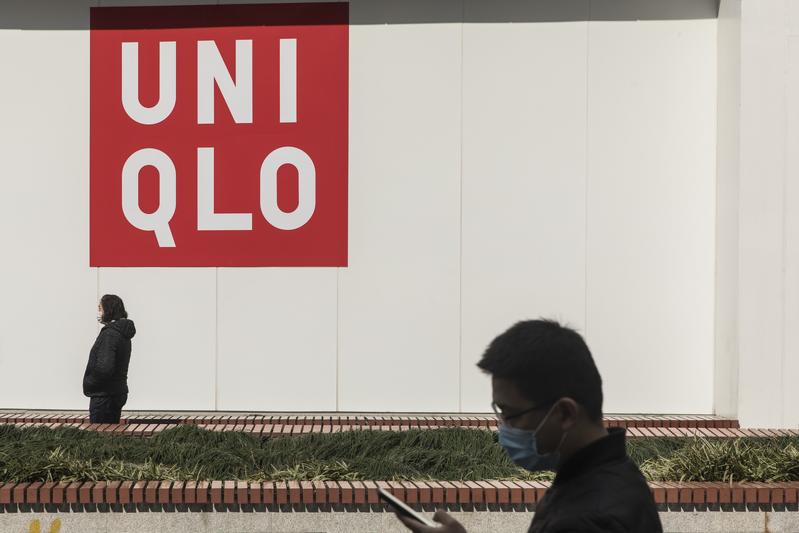 In this Feb 5, 2020 photo, pedestrians wearing protective masks walk past a Uniqlo store, operated by Fast Retailing Co, on Nanjing Road in Shanghai, China. (QILAI SHEN / BLOOMBERG)
In this Feb 5, 2020 photo, pedestrians wearing protective masks walk past a Uniqlo store, operated by Fast Retailing Co, on Nanjing Road in Shanghai, China. (QILAI SHEN / BLOOMBERG)
Asia’s largest retailer is betting that it has the right product at the right time: A Uniqlo face mask.
Uniqlo joins a constellation of businesses seeking to offer new products and services as the coronavirus pandemic upends lifestyles around the globe
Fast Retailing Co, operator of the clothing stores, will begin selling reusable face masks in Japan this week. The masks, which will be sold in sets of three and retail for 990 yen (US$9), aim for both performance and comfort, the company said in a statement Monday.
Uniqlo joins a constellation of businesses seeking to offer new products and services as the coronavirus pandemic upends lifestyles around the globe, changing how people work, dress and eat. Companies are racing to adapt to that change; Fast Retailing said the decision to make and sell masks was due to customer demand.
Plans for sales of the Uniqlo masks outside of its home base of Japan will be announced as they are set, Fast Retailing said. With more than 2,000 stores globally and over US$20 billion in annual sales, it would be one of the largest retailers to sell masks. Other large apparel makers such as Gap Inc, Madewell Inc and Adidas AG have also recently introduced face masks.
ALSO READ: Uniqlo opens biggest Southeast Asian store in Manila
Fast Retailing, which plans to produce 500,000 mask packs a week, will use its breathable AIRism fabric for the masks, which it developed with Japanese textile company Toray Industries Inc. The masks have a bacterial filtration efficiency of 99 percent which is retained even after 20 washes, according to the statement. AIRism is often used to market breathable summer clothing, which could boost its appeal ahead of the hot and humid summer in Japan, where authorities have begun issuing warnings of the increased danger of heat stroke when wearing a mask.
Face masks, commonly worn in Japan and other Asian countries, have been cited as one potential reason why transmission of the virus that causes COVID-19 has been lower in Asia. In the US, the usage of masks has drawn controversy amid mixed messaging from leaders.


